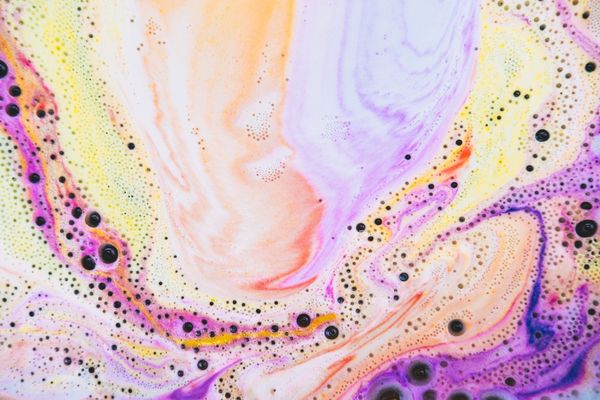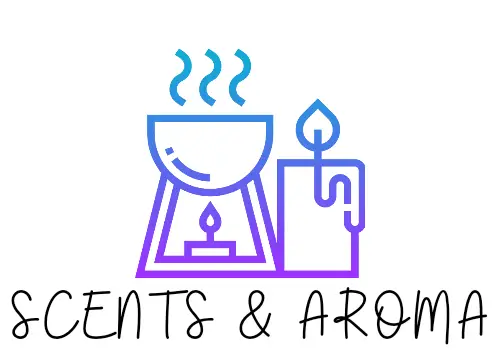Yes, bath bombs work in cold water, but the fizzing reaction is much slower than in hot water. Bath bombs were made to work in hot water so you will not get the best results when using them in a cold bath. The heat speeds up the chemical reaction, making the bath bomb fizz better.
In this article, we will discuss the following topics:
- Can you use a bath bomb in a cold bath?
- Why do bath bombs work in cold water?
- Do bath bombs work faster in hot or cold water
- Are bath bombs better in hot or cold water?

Can You Use a Bath Bomb in a Cold Bath?
You can use bath bombs in a cold bath, however, it is best to use them in a hot or warm bath. Bath bombs were designed for hot baths, so using them in cold baths will limit their performance.
When a bath bomb is put into a hot bath, the bath bomb fizzes, releasing the ingredients in it. In a cold bath, this reaction is slowed down, and some ingredients that are best suited for hot baths, will not be properly dispersed.
In the summer and on hot days, taking a hot bath could be very unsuitable so using bath bombs in hot water might not be possible. In such situations where you have to use a bath bomb in a cold bath, use the ones that don’t contain ingredients such as creams, cocoa butter, and salts, that do not dissolve well in cold water. You can also make DIY bath bombs that are more suited for cold baths.
Why do Bath Bombs Work in Cold Water?
Bath bombs work in cold water because water is the component necessary to activate the bath bomb. The temperature of the water only matters when you are considering how well the bath bomb fizzes.
Water triggers the chemical reaction that causes the bath bomb to fizz, so whether you are using cold or hot water, your bath bomb will still fizz and dissolve. However, the fizzing reaction in cold water will be less noticeable (if not unnoticeable) than that in hot water.
Do Bath Bombs Work Faster in Hot or Cold Water?
Bath bombs work faster in hot water than in cold water. Cold water slows down the fizzing reaction in bath bombs so the warmer the water, the faster the fizz.
Bath bombs are made of baking soda, citric acid, cornstarch, essential oils, fragrances, dyes, etc. It is dry packed, and when dropped into hot water, there is a fizzing reaction, and the ingredients are released into the water.
To achieve this fizzing reaction that bath bombs are uniquely identified by, a chemical reaction occurs between the baking soda and citric acid. This reaction is triggered by water, so when bath bombs come in contact with water, the baking soda, acting as a base, combines with the citric acid, which is the acid, to form an acid-base reaction.
Carbon dioxide and sodium citrate are released in the process and the carbon dioxide forms bubbles or fizz. The bath bomb fizz lasts for a short period, so cornstarch is added to stabilize and slow down the fizzing reaction.
Hot water acts as a catalyst since heat is a source of energy. The hot water quickens the chemical reaction, causing bubbles to form faster. However, in a cold bath, the reaction is slower with fewer carbon dioxide bubbles, especially when the bath bomb contains cornstarch. It can be so slow that you would barely notice it fizz, and this takes the fun out of it.
Are Bath Bombs Better in Hot or Cold Water?
Using bath bombs in a hot bath is better than using them in a cold bath. Cold water slows down the fizzing reaction in bath bombs and it also prevents ingredients like cocoa butter, essential oil, cream, and salts, from dissolving properly.
Bath bombs work better in hot water, and you will reap more benefits because the water will properly disperse the secondary ingredients that have been added to provide health benefits.
In cold water, butter and cream will not dissolve but will rather harden into lumps that can block the tub filters. Salts like Epsom salt or dead sea salt that are often added to bath bombs for their exfoliating benefits, cannot be dissolved by cold water. Also, essential oils are better dispersed in hot water because the heat breaks down the molecules.
If you cannot help taking a cold bath, probably because of the weather, and you want to use a bath bomb, you can make your own bath bombs with little adjustments to make them suited for a cold bath. Here are some tips for making DIY bath bombs:
- Reduce the Cornstarch: The cornstarch’s work is to slow down the fizzing reaction in a bath bomb, so for a cold water bath bomb, you should reduce the cornstarch or leave it out completely so the fizzing reaction will be faster.
- Increase the Citric Acid: Increasing the acid quantity in the bath bomb will increase the fizz produced when the bath bomb is put in cold water.
- Choose Oils Wisely:
Go for lighter oils that will not leave residues that could clog your tub. Since there is no heat to break down the oil, it is best to use lighter oils, carrier oils like coconut oil are a great addition.
- Don’t Add Cream, Butter, or Salt:
These ingredients don’t dissolve well in cold water. Using them will only leave your tub messy and you will not derive any benefit from using them. It is best to leave these ingredients out and settle for other ingredients.
Conclusion
Bath bombs work in cold water, but they do not work as well as they do in hot water. The heat helps to quicken the chemical reaction between the baking soda and citric acid in the bath bomb, eventually making the bath bomb fizz. In cold water, the reaction is slower because of the absence of a catalyst. Also, bath bombs contain ingredients like butter, essential oil, and salt that dissolves better in hot water.
However, if you must use bath bombs in cold water, it is best to avoid bath bombs with butter, cream, salt, and heavy essential oils. You can also make a DIY bath bomb that is suitable for cold water.
If you enjoyed reading this guide you may also be interested in my guide to using bath bombs without a bath tub.
- Can You Put Perfume In A Humidifier? (Read First) - September 17, 2022
- Can You Put Essential Oil In A Steam Mop? (Safety Advice) - September 17, 2022
- How To Make Lavender Oil At Home ( Candles And Diffusers) - September 9, 2022
